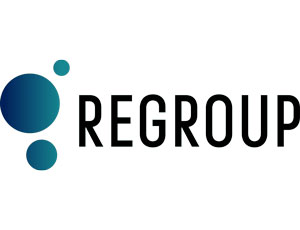Kierownik UJ: prof. dr hab. Zdzisław Mach
Projekt badawczy Horizon2020 Research and Innovation Actions: „EU3D. EU Differentiation, Dominance and Democracy” („EU3D: Zróżnicowana integracja, dominacja i demokracja”), koordynowany przez ARENA Center for European Studies, Oslo University (Norwegia).
Źródło finansowania: Projekt finansowany przez Komisję Europejską w ramach Programu Horizon2020 Research and Innovation Action: Societal Challenges. Europe in a changing world – Inclusive, innovative and reflective societies.
Projekt „EU3D. EU Differentiation, Dominance and Democracy” koncentruje się na analizie przyszłości Unii Europejskiej z perspektywy zróżnicowanej integracji. Wyzwania ostatnich lat, przed którymi stanęła Unia Europejska, zainicjowały debatę o tym, czy państwa członkowskie powinny i chcą kontynuować wysiłki integracyjne z tą samą intensywnością. Zróżnicowana integracja, stanowiąca rdzeń architektury instytucjonalnej UE, nabiera nowego znaczenia w świetle debaty na temat wyjścia z UE Wielkiej Brytanii i innych działań na rzecz redukowania udziału czy wyłączania z pewnych obszarów integracji niektórych państw członkowskich. Te wyzwania dotyczą kierunku integracji europejskiej, kwestii jej funkcjonowania i jej demokratycznej legitymizacji. W odpowiedzi na wyzwania stojące przed integracją europejską projekt będzie się koncentrował na analizie, czy i w jaki sposób zróżnicowana integracja jest konieczna, sprzyjająca dalszemu rozwojowi UE, zrównoważona oraz akceptowalna z punktu widzenia wypełniania standardów demokratycznych. W projekcie współpracować będą badacze z instytucji akademickich i wiodących europejskich think tanków (Uniwersytet w Oslo, Breugel, Hellenic Foundation for European and Foreign Policy (ELIAMEP) z Grecji, Uniwersytet Komeński w Bratysławie, Uniwersytet Jagielloński, LUISS School of Governance w Rzymie, Uniwersytet w Kopenhadze, Uniwersytet w Konstancji, Science Po Grenoble i Uniwersytet Oksfordzki). Projekt rozpocznie się wiosną 2019 roku i potrwa cztery lata. Kierownikiem zespołu badawczego na UJ jest prof. dr hab. Zdzisław Mach, zaś składa się z badaczy z Instytutu Europeistyki (dr Magdalena Góra, dr Joanna Orzechowska-Wacławska, dr Natasza Styczyńska, dr Karolina Czerska-Shaw, dr Przemysław Tacik i dr Marcin Zubek), a także Instytutu Socjologii (dr Marta Warat i dr Katarzyna Zielińska).
Reference number: 822419-EU3D-H2020-SC6-GOVERNANCE-2018-2019-2020/H2020-SC6-GOVERNANCE-2018


